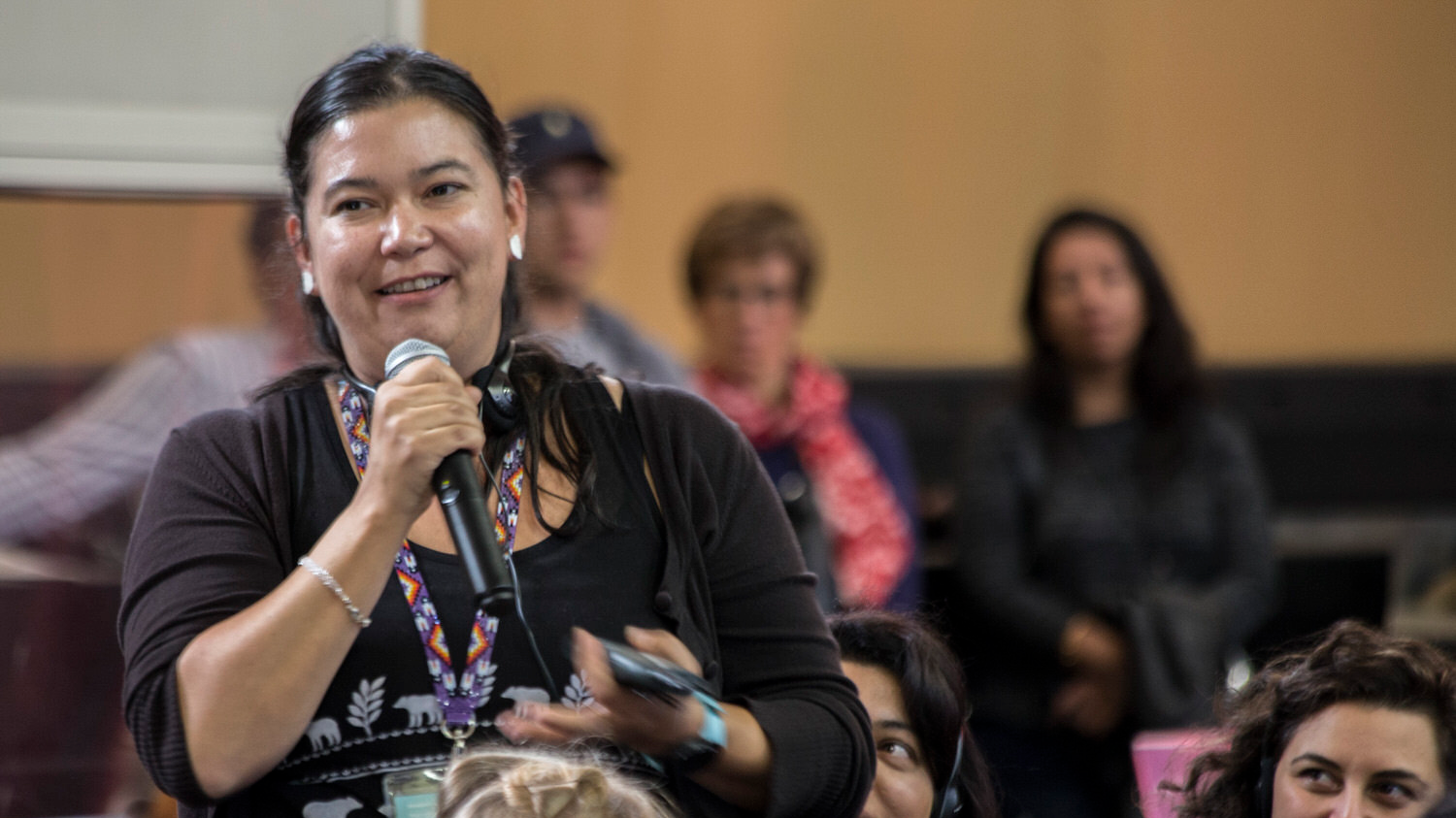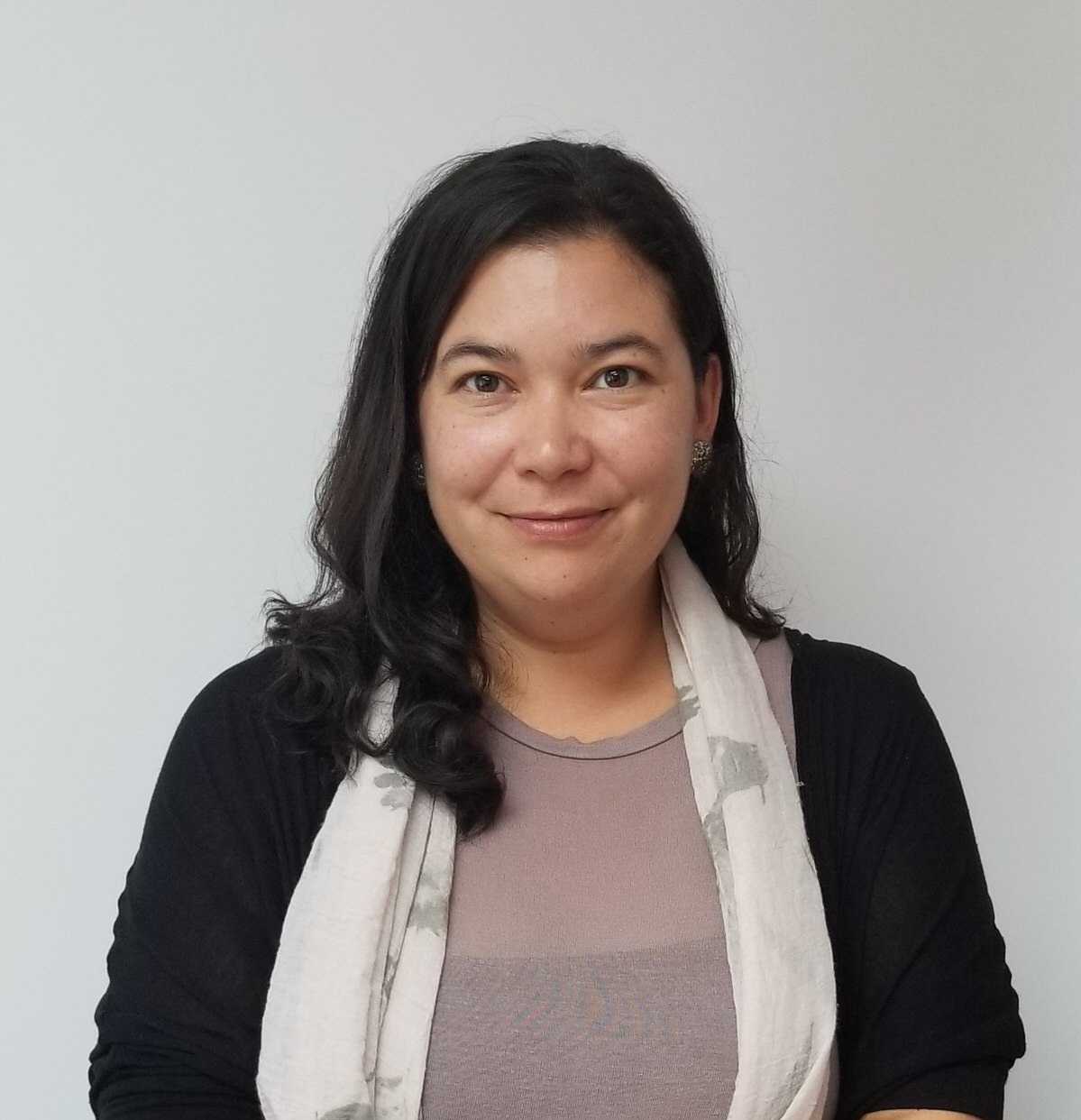 Karine Awashish at the PC/Cp Gathering 2017 on
Karine Awashish at the PC/Cp Gathering 2017 on
Lekwungen territory. Photo credit: Kirk Schwartz.
At the Primary Colours/Couleurs primaires gathering last September at the Songhees Wellness Centre on Lekwungen Territory, we held a sharing circle under the theme Community, Ethics and Art. Our workshop brought together artists of various origins, including from the Ilnu, Atikamekw, and Métis Nations, as well as artists from Haitian and Acadian communities. The exchange gave rise to much reflection as well as a better understanding of the issues related to the emerging artistic creativity of our communities and their relationship to ethics.
One of the first themes that emerged was the notion of identity. Each of the participants spoke to the importance of expressing their cultural identity through their art. This often involves representations of their language, their territory, and their history. Identity is absolutely key, not only in their creative process, but also in the desire to affirm the identity of their communities and their nations. Everyone agreed that art is the best way to affirm one’s identity. Even more important is the ability of artists and creators within communities to control the expression of that identity as well as the dissemination of their image. The notion of image and representation through the arts is an ongoing issue for visible minority artists, because we often find ourselves in situations where “others” (representatives of the dominant society) hold the privilege of promoting a culture and an identity that are not their own. This is particularly true in the fields of literature and cinema.
Our discussion on the notion of identity obviously led to a variety of exchanges on the issue of cultural appropriation. Without getting into the existing problems related to cultural appropriation identified by our communities, our discussions did allow us to take stock and to determine possible solutions that will enable us to exercise better control over the dissemination and promotion of our cultural identity. One such solution would be to raise the awareness of decision-making bodies and institutions as to the importance of enabling community representatives to take control of their cultural and artistic projects. It is crucial that organizations supporting the arts understand the importance of giving artists the means to manage their own practice.
In summary, the themes proposed for this sharing circle enabled us to raise some interesting points of view on ethics. Above all, the exchanges confirmed our common vision as artists concerning the need to increase the potential of art, to contribute to the affirmation, healing, and self-determination of our communities. We must use our creative processes to defend and protect the expression of our imaginary universe, which embodies the richness of our cultures as well as our distinct values and worldviews.
Translated by Don Sugden, reviewed by Breanna Fabbro
 Karine Awashish
Karine Awashish
Ms. Karine Awashish, atikamekw is from the Atikamekw community of Opitciwan. Ms. Awashish is a multidisciplinary creative and social entrepreneur who has accumulated professional experiences in Aboriginal social and cultural development for over 15 years. In 2015, she co-founded Coop Nitaskinan, a work cooperative that enables the development and implementation of collective social, cultural and economic projects on Nitaskinan, territory of the Atikamekw Nation. Her involvement in the Tapiskwan collective project, of which she is also one of the founders, allows her to combine her personal and professional goals, which are particularly important to her, namely the creation and dissemination of Atikamekw culture and arts, as well as the development of the youth.